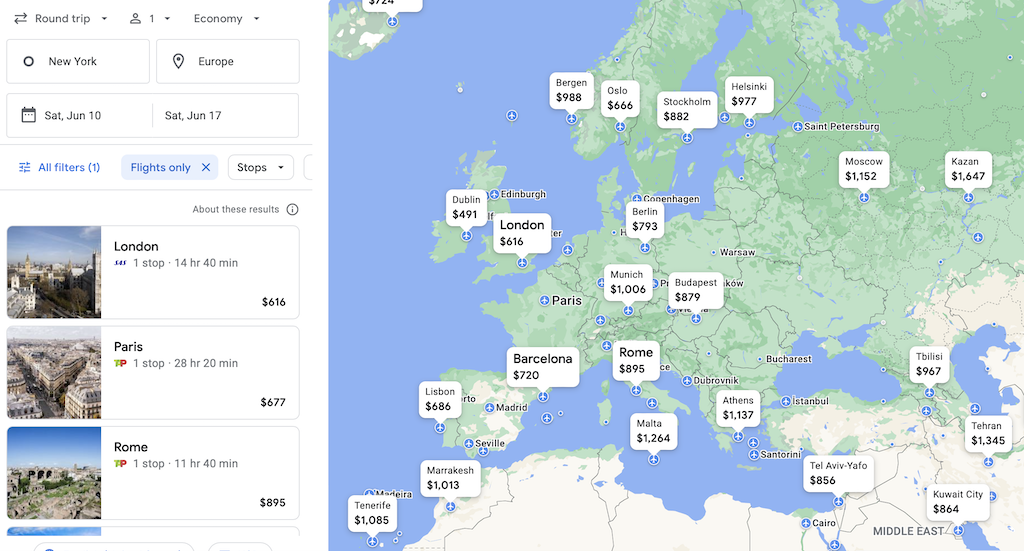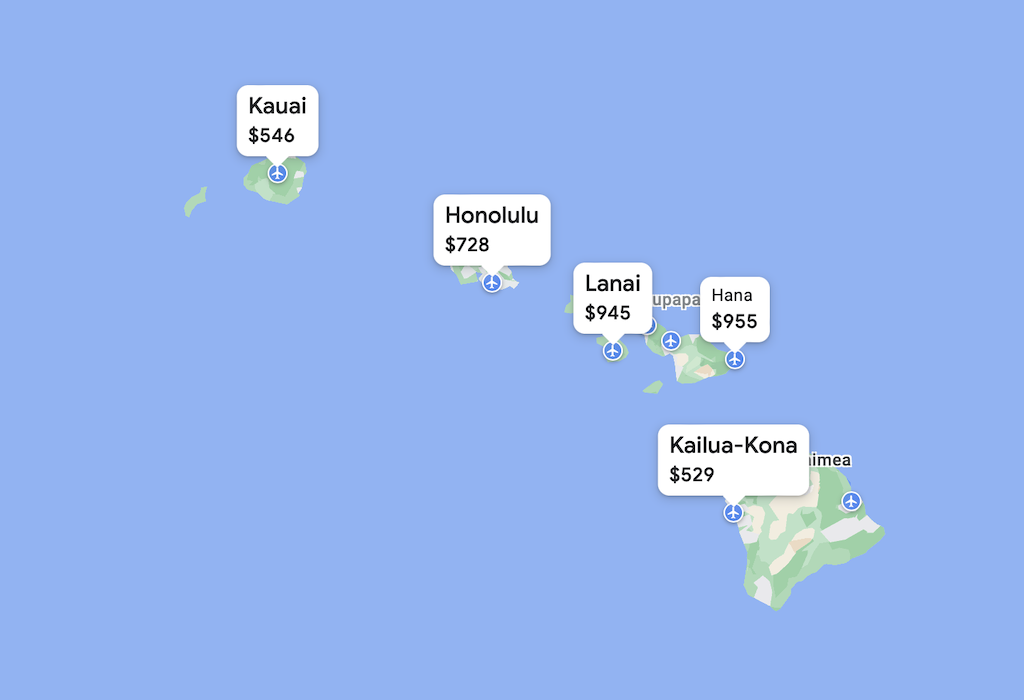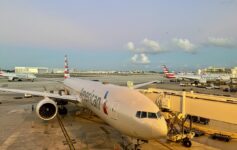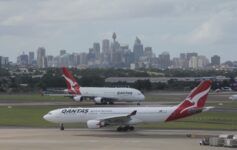Industry leaders have touted how busy this summer will be for travel, but other data points counter that. Will 2023 be a busier travel season than 2022, or fall flat?
If you are considering booking travel or signing up for a new credit card please click here. Both support LiveAndLetsFly.com.
If you haven’t followed us on Facebook or Instagram, add us today.
United, Marriott Confident Summer 2023 Will Be Very Busy
Marriott CEO, Anthony Capuano, was interviewed this week responding to questions about lingering COVID pent-up demand, the driving force behind travel growth in the last 18 months. He had an opportunity to hedge, and kind of did so before diving headlong into exuberance.
“I think it’s fascinating to listen to all of the experts predict what 2023 will look like. I’ve been in the industry for 35 years, I’ve been with the company for 28 years, and I’m not sure I’ve ever gone into January with such a wide set of viewpoints on what the coming year will look like. I’ve seen people predict double-digit RevPAR growth in 2023. I’ve seen some predict negative RevPAR growth for 2023. And all that variance underscores the uncertainty around sociopolitical instability, economic headwinds, threat of a recession. Thankfully, the data does not reveal softness today. We continue to see strong growth across all customer segments and in most areas of the world. So I’m quite bullish.” – Capuano for Travel Weekly
He added some comments about residual pent-up demand,
“I think how we characterize that pent-up demand may be a little different; it may have a heavier cross-border component. But I don’t think we’re close to the bottom of that bucket.”

After reporting more than $800 million in profit for Q4 2022, projections for 2023 remained elevated at United Airlines according to Kirby and its management team.
“United Airlines reported fourth-quarter profit and revenue higher than Wall Street expectations and gave a bullish 2023 forecast that assumes people will keep traveling despite inflation and concern about the economy.” – Associated Press
Both American Airlines and Delta Air Lines remained optimistic with 2023 targets.
I was questioned on the same question of pent-up demand and whether it was winding down. We haven’t seen a drop as of yet with plenty of travelers preparing for their summer vacations booking premium trips like luxury all-inclusive resorts and high-end European river cruises. But there’s always a danger in making large proclamations this time of year, especially for summer getaways half a year away. I wasn’t wrong when I first spoke about pent-up demand, but that doesn’t mean I won’t be here.
Award Availability And Prices Counter Narrative
This week mass award availability was released even in premium cabins on ANA, Singapore, and other carriers. Widespread availability in high seasons suggests that those flights are underselling to this point and that’s odd given the other data points.
Some prices appear to have subsided from prior nosebleed high prices. For example, in peak summer season, June 10-17th from New York features sub-$500 Dublin roundtrips, London for the low $600s. July 4th weekend has slightly elevated prices for those wishing to visit Buckingham Palace in London, and the Spanish Steps in Rome for example. August is the nexus month with US professionals and virtually all of Europe are on holiday, but surprisingly prices have dropped again back to June levels.

Prices to Hawaii during shoulder season in May are in the mid $500s to Kauai and Kona, or about double during June, July, and August. Flying from the Pacific coast is routinely inexpensive as it often is for the highly competitive market.

Layoffs, Recession Concerns Remain High
The tech sector has been heavy with layoffs in the last few months though unemployment numbers haven’t taken a dramatic hit.
“Announcements of layoffs, particular in the tech sector, continue, but those job losses haven’t translated into a notable rise in claims,” wrote Nancy Vanden Houten, lead U.S. economist at Oxford Economics.
“That suggests that these workers are finding it relatively easy to find other jobs or are confident they will be able to do so.” – The Hill
Jamie Dimon has long predicted a recession and that prediction has reverberated around the market for some time. I, too, have speculated that the economy is a likely candidate for a recession and I’m not alone. Economists interviewed by Forbes stated that there’s a 70% chance of a recession this year.
“When it comes to economic events, knowing when, where and how isn’t that unusual. What is strange is how far ahead economists forecasted this particular downturn – and how many agree it’s all but inevitable.” – Forbes
Typically, the first thing to go when the economy experiences a downturn is discretionary purchases like travel. With prices at all-time highs through the first quarter, it’s no surprise that summer destinations might experience lower demand.
Conclusion
It’s hard predicting the future but bullish comments may or may not translate into a bullish market for travel. I lean toward the market softening based on summer cash prices, usually higher for this far out during peak season, and the widespread availability we have seen for awards this week. However, I was shocked by lasting pent-up demand that has made travel purchases relentless over the last two years. I’ve been wrong before, I will be wrong again, but I predict we will see some trading higher costs at home and warning signs of a recession will scare some travelers away from big expensive international trips and back to domestic road trips with National Parks as the focus. Only time will tell.
What do you think? Are you expecting a continuation of high travel activity or will we see a slump? Are you concerned about a possible recession or emboldened by relatively strong jobs reports?




IMO, travel demand will remain high at least the next two years due to continued pent up demand, low unemployment, resilient asset values (stock markets are only down a bit when looking over the long run, home equity still high), and more flexible work schedules. Airline prices and award availability are a bit volatile given a lot of capacity is coming back into the international market, so airline prices aren’t the best indicators of demand – hotel prices are the better gauge.
The recession, if it happens, seems like a 2024 or 2025 event rather than a 2023 event
Also, remember last year when you cited the Deloitte report that said corporate travel spend would be at 36% of 2019 levels as of 2Q22 and get only to the mid 50s% by year end? When in reality, corporate travel spend reached around 80% of 2019 levels by mid year (but has plateaued since), as evidenced by the record profits reported by airlines and hotels companies over that time period?
https://www2.deloitte.com/us/en/insights/focus/transportation/business-travel-trends-outlook-2022.html
I think a lot of people continue to underestimate how much actual travel is going on currently on both the business and leisure side.
@Anthony: As I pointed out when I quoted that, the detail is flawed because it’s based on “spend” but costs are up dramatically skewing how many are actually traveling. For example, in the linked article to Marriott in this post, the brand earned 28.9% more on a per-night revenue basis (they didn’t net that as costs have risen too, but they did earn it). On a crude level, take Deloitte’s end-of-year number (50%), add 28.9% and you’re at 78.9% which is just shy of the round 80% figure you mentioned. Record profit relates to a net 28.9% increase in price vs 20% rise in costs and that’s against 2019 which was already a record year across the board.
But there are not nearly as many travelers for business purposes. We need a number that measures business traveler segments from 2019 and 2022. The reason it needs to be segments is because if we just count business travelers, that doesn’t account for a business traveler that used to fly 100 flights a year but now flies 20, it would just account for the number of travelers and if they traveled in 2019 and 2022, then the number would be one of one. The revenue doesn’t work, the business traveler count doesn’t work; units would work: miles driven, segments flown, nights stayed.
I still travel for work, but in 2022 I maybe completed 20 segments vs 80-90 in 2019. I may have paid 80% of what I did in 2019 but for dramatically fewer trips. That will absolutely matter if discretionary spending is curtailed and prices drop. I may be apt to add a few more trips, but we can’t ignore the fact that business travel is down (not dead) and will stay down (not dead) for a long time. Economy aside, how much easier is it to get and hold a meeting on video conferencing software than an in-person meeting? If you travel for work, you know that this is a reality we have to face.
As noted above, capacity is increasing quite significantly – e.g. I just saw Avianca are adding more transatlantic flights – I think they are up to 4 daily on the Madrid route alone! Flexible working may actually help smoothen the holiday season peaks- anyone who isn’t tied to school dates is less likely to go away in/near August. This should mean less dramatic price shifts which can only be a good thing for hotels etc (on the other hand, people like me may struggle to find 4* hotels in Lisbon, Madrid etc for €70-80 a night like we could prior to the pandemic, but then again there’s inflation, so I suppose that one could say that €100 is the new €80).
I travel for work and for leisure. 2022 was much more travel than I’d done in 2017-2019. 2023 has already gotten off to a roaring start. And for both the start of this year and a significant portion of 2022, planes are flying full. Anecdotally, there was space on CPH-JFK in Delta Premium Select, but then my flight last week MEX-CJS on AeroMexico was grossly overbooked, and I got bumped. Corporate travel is scrutinized for economical value and usefulness, as always. And travel seems to be continuing apace for the rest of 2023.
Quoting Forbes, Fortune and Jamie Dimon is cherry picking the loudest drummers for the steady drumbeat of “recession is coming, recession is coming!” Not saying your choices were intentional, but these sources are deafening and unwavering in their negativity. Unemployment numbers and quarterly economic reports do not suggest a recession is imminent/around the corner.
One notable trend we saw during travel last week in El Paso/Juarez was a lot of empty hotel rooms…not many lights on at night. Is that a sign of business travel is lighter than normal? Military families not staying nearby multiple bases? Hard to say, maybe too much capacity was one thought.
Good article to get the deep thinking juices flowing, Kyle!
The best thing about predicting a recession is that if you do it every year you will eventually be correct. It’s just a normal part of the economic cycle and many times they last for less than a year. The doom and gloom is unnecessary
it will be less rosey than predicted, and the C Suites will dream up creative reasons why, but accepting responsibility, will not be part of it.